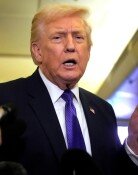Soft Landing Before Exit Strategy
Soft Landing Before Exit Strategy
Posted February. 16, 2010 09:01,
China, the U.S. and other countries have begun or hinted at implementing exit strategies, a departure from their policies introduced in the aftermath of the U.S.-triggered global economic crisis in 2008. Massive injection of liquidity in the market to counter recession and lowering interest rates have helped recovery but at the same time raised fears over inflation. An exit strategy thus includes measures to reduce market liquidity and raise interest rates. For example, China for the second time in a month will raise the reserve ratio of commercial banks half a percentage point Feb. 25 to prevent overheating of its economy.
U.S. Federal Reserve Chairman Ben Bernanke said last week, however, that the time is not ripe for an exit strategy. He said the Fed will soon raise the rediscount rate applied to federal loans to banks and retrieve liquidity by selling repos to commercial banks. He also said any raise in the federal funds rate will be determined by economic circumstances and timing. On a potential rise in the rediscount rate, he said, We plan to raise it soon, so dont be surprised. His comments can be interpreted as a signal to market players that though a full-fledged exit strategy has yet to come, they should brace themselves for substantial changes in the market.
The Korean economy is largely affected by policy changes in China and the U.S., Koreas two largest trading partners. Full-fledged exit strategies in those nations are not welcome news to Korea, but Seoul cannot just rely on its own strategies. Therefore, the Korean government should come up with its own measures to encourage a soft landing while pursuing international cooperation and prudently adjust the timing of its exit strategy.
Koreas benchmark interest rate has stayed at two percent for more than a year since the Bank of Korea lowered it early last year. Central bank Governor Lee Seong-tae has hinted at raising the rate on several occasions, but the banks Monetary Policy Committee retained the rate Thursday. Nevertheless, it will be difficult to keep the rate this low for years to come.
The Group of 20 summit to be held in Seoul this year has exit strategies on its agenda, but a global consensus can hardly be expected. Korea is in no position to demand a prompt implementation of an exit strategy compared to other nations, but it should seek the right timing by looking comprehensively at economic trends both in and out of the country and send the right signals to the market in advance. To this end, close cooperation and coordination between the central bank and the Strategy and Finance Ministry are critical to prevent sending mixed signals.



![17년 망명 끝에, 부모 원수 내쫓고 집권[지금, 이 사람]](https://dimg.donga.com/c/138/175/90/1/wps/NEWS/IMAGE/2026/02/18/133376197.3.jpg)



